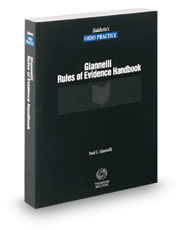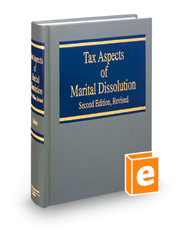Articles Published in 2010
Articles on our Scholarly Commons
Book Chapters Published in 2010
Michael P. Scharf, Joint Criminal Enterprise, the Nuremberg Precedent, and the Concept of "Grotian Moment", in Accountability for Collective Wrongdoing 119 (Tracy Isaacs & Richard Vernon eds., 2010).
-
Accountability for Collective Wrongdoing by
Call Number: KZ7075 .A923 2011ISBN: 9780521176118Publication Date: 2011Ideas of collective responsibility challenge the doctrine of individual responsibility that is the dominant paradigm in law and liberal political theory. But little attention is given to the consequences of holding groups accountable for wrongdoing. Groups are not amenable to punishment in the way that individuals are. Can they be punished - and if so, how - or are other remedies available? The topic crosses the borders of law, philosophy, and political science, and in this volume specialists in all three areas contribute their perspectives. They examine the limits of individual criminal liability in addressing atrocity, the meanings of punishment and responsibility, the distribution of group punishment to a group's members, and the means by which collective accountability can be expressed. In doing so, they reflect on the legacy of the Nuremberg Trials, on the philosophical understanding of collective responsibility, and on the place of collective accountability in international political relations.
Michael P. Scharf, Seizing the "Grotian Moment": Application of Joint Criminal Enterprise Liability to the Proceedings of the Cambodia Genocide Tribunal, in Collective Violence and International Criminal Justice: An Interdisciplinary Approach 131 (Alette Smeulers ed., 2010).
-
Collective Violence and International Criminal Justice by
Call Number: K5064 .C65 2010ISBN: 9789400000995Publication Date: 2010Extreme forms of collective violence - such as genocide, crimes against humanity, and war crimes - can endanger international peace and security. The international criminal justice system has been set up in order to prosecute these crimes and thus to restore international peace and security. These crimes are, however, extremely complex social phenomena and it takes an inter- and multidisciplinary approach to understand the true nature of this type of criminality and to effectively prosecute the perpetrators thereof. This book enhances our knowledge of these complex phenomena and thus contributes to a better and more effective system of international criminal justice. Scholars from many different scientific disciplines - such as law, criminology, political science, psychology, research methodology, and information technology - as well as practitioners from within the field, have contributed to this book. General themes include: What kind of people are perpetrators of collective violence? How can we attribute criminal responsibility to individuals for crimes which are collective in nature? How can we study these crimes and how can we discover patterns of violence? What role can statistics play when holding individuals accountable? How do we develop strategies of prosecution? What difficulties do prosecutors and judges face? How important and useful is the International Criminal Court Case Matrix? These are just a few of the many questions addressed in the book.
Raymond Shih Ray Ku, Antitrust Immunity, the First Amendment and Settlements: Defining the Boundaries of the Right to Petition, in Freedom of Assembly and Petition: The First Amendment: Its Constitutional History and the Contemporary Debate 142 (Margaret M. Russell ed., 2010).
-
Collective Violence and International Criminal Justice by
Call Number: K5064 .C65 2010ISBN: 9789400000995Publication Date: 2010Extreme forms of collective violence - such as genocide, crimes against humanity, and war crimes - can endanger international peace and security. The international criminal justice system has been set up in order to prosecute these crimes and thus to restore international peace and security. These crimes are, however, extremely complex social phenomena and it takes an inter- and multidisciplinary approach to understand the true nature of this type of criminality and to effectively prosecute the perpetrators thereof. This book enhances our knowledge of these complex phenomena and thus contributes to a better and more effective system of international criminal justice. Scholars from many different scientific disciplines - such as law, criminology, political science, psychology, research methodology, and information technology - as well as practitioners from within the field, have contributed to this book. General themes include: What kind of people are perpetrators of collective violence? How can we attribute criminal responsibility to individuals for crimes which are collective in nature? How can we study these crimes and how can we discover patterns of violence? What role can statistics play when holding individuals accountable? How do we develop strategies of prosecution? What difficulties do prosecutors and judges face? How important and useful is the International Criminal Court Case Matrix? These are just a few of the many questions addressed in the book.
Jonathan H. Adler, Perverse Incentives and the Endangered Species Act in Issues of the Day: 100 Commentaries on Climate, Energy, the Environment, Transportation, and Public Health Policy 128 (Ian W.H. Parry & Felicia Day eds., 2010).
-
Issues of the Day by
Call Number: GE170 .I77 2010ISBN: 9781933115870Publication Date: 2010Issues of the Day provides an easy way for students, academics, journalists, policymakers, and the public to learn about a diverse range of policy issues affecting the environment, energy, transportation, and public health. Each commentary gives a short assessment of a topic, summarizing in a non-technical way the current state of analysis or evidence on the issue, along with selected recommendations for further reading. The essays are written by world renowned scholars, mostly economists, and provide useful insights on policy problems that are often complex and poorly understood. Some of the topics covered include air pollution, hazardous waste, voluntary environmental programs, domestic (U.S.) and global climate policy design, fishery management, water quality, endangered species, forest fires, oil security, solar power, road and airport, fuel taxes and fuel economy standards, alternative fuel vehicles, health and longevity, smoking, malaria, tuberculosis, and the environment and development. The objective is to disseminate the findings of sound, objective research on the costs, benefits, and appropriate reform of public policies. The book provides a useful supplement for undergraduate- and graduate-level course reading, a reference guide for professionals, and a way for the general reader to quickly develop an informed perspective on the most important policy problems of the day. Issues of the Day is available to download as a PDF from the Resources for the Future website: www.rff.org/weeklycommentary
Richard K. Gordon, The International Monetary Fund and the Regulation of Offshore Centers, in Offshore Financial Centers and Regulatory Competition 74 (Andrew P. Morriss ed., 2010).
-
Offshore Financial Centers and Regulatory Competition by
Call Number: HG3881 .O335 2010ISBN: 9780844743240Publication Date: 2010Offshore financial centers (OFCs) have a troubled reputation for enabling tax evasion, money laundering, autocratic looting, and even the financing of terrorism-but they play an essential role in the world economy. Fears of criminal activity have prompted many onshore governments to restrict offshore competition, but over-regulating OFC activity presents a serious risk of destabilizing the global financial system. In Offshore Financial Centers and Regulatory Competition, a group of leading international law and finance experts argues that offshore jurisdictions have become key players in corporate finance and captive insurance markets. OFCs offer legal protections for financial privacy and provide regulatory competition to onshore jurisdictions, forcing national governments to evaluate and reform their own tax and regulatory policies. Offshore centers also help to streamline foreign direct investment and create growth opportunities for countries with weak financial systems by providing access to global capital and sophisticated courts. As the ongoing financial crisis produces new regulatory regimes aimed at eradicating money laundering and other white-collar crimes, Andrew P. Morriss and his coauthors contend that legitimate offshore competition must be allowed to flourish. OFCs are no longer the shady tax havens portrayed in popular media, and onshore governments must recognize and protect their important contributions to the global economy.
Jonathan H. Adler, The Adverse Environmental Consequences of Uncompensated Land-Use Controls, in Property Rights: Eminent Domain and Regulatory Takings Re-Examined 187 (Bruce Benson ed., 2010).
-
Property Rights by
Call Number: KF5599 .P76 2010ISBN: 9780230102477Publication Date: 2010In an effort to understand the reasons for and consequences of the political backlash to the U.S. Supreme Court decision, Kelo v. New London, this book brings together a diverse group of scholars and practitioners who explore the uses and abuses of eminent domain and regulatory takings.
Michael P. Scharf, The Ad Hoc International Criminal Tribunals: Launching a New Era of Accountability, in Routledge Handbook of International Criminal Law 51 (William Schabas & Nadia Bernaz eds., 2010).
-
Routledge Handbook of International Criminal Law by
Call Number: KZ7230 .R68 2011ISBN: 9780415552035Publication Date: 2010International criminal law has developed extraordinarily quickly over the last decade, with the creation of ad hoc tribunals in the former Yugoslavia and Rwanda, and the establishment of a permanent International Criminal Court. This book provides a timely and comprehensive survey of emerging and existing areas of international criminal law. The Handbook features new, specially commissioned papers by a range of international and leading experts in the field. It contains reflections on the theoretical aspects and contemporary debates in international criminal law. The book is split into four parts for ease of reference: The Historical and Institutional Framework ¿ Sets international criminal law firmly in context with individual chapters on the important developments and key institutions which have been established. The Crimes ¿ Identifies and analyses international crimes, including a chapter on aggression. The Practice of International Tribunals ¿ Focuses on topics relating to the practice and procedure of international criminal law. Key Issues in International Criminal Law ¿ Goes on to explore issues of importance such as universal jurisdiction, amnesties and international criminal law and human rights. Providing easy access to up-to-date and authoritative articles covering all key aspects of international criminal law, this book is an essential reference work for students, scholars and practitioners working in the field.
Books Published in 2010
-
Courtroom Criminal Evidence (4th ed) byPublication Date: 2005-2010 (annual supplements)
-
Cyberspace Law (3rd ed) by
Call Number: KF390.5.C6 K8 2010ISBN: 9780735589339Publication Date: 2010Early adopters of Cyberspace Law: Cases and Materials were particularly pleased by how flexible, coherent, and practical the book is. Now strengthened and scrupulously updated for its Third Edition, this engaging casebook can help your students understand one of the most dynamic areas of law. -
Genetics: Ethics, Law, and Policy (3rd ed) by
Call Number: KF3827.G4 A85 2010ISBN: 9780314911865Publication Date: 2010-03-25Perfect for an upper level seminar or course, this casebook traces the legal impacts of genetics across the legal spectrum--from family law to medical law to forensics. It addresses international and federal regulation of genetic research; medical applications including prenatal testing, pharmacogenomics, and gene therapy; paternity testing; intellectual property rights; and the use of genetic technologies by social institutions, including law enforcement, courts, insurers, employers and schools. The 3rd edition newly covers Octomom and President Obama's stem cell directive. No scientific background on the part of the students or professor is required. -
Giannelli Evidence (3rd ed) by
Call Number: KFO540 .G52 2010ISBN: 9780314927149Publication Date: 2010 -
 Giannelli Rules of Evidence Handbook (2010 ed)
by
Call Number: KFO540.G53Publication Date: 2010This softcover volume, Rules of Evidence Handbook, is a quick reference to the Ohio Rules of Evidence. Authors' expert comments shed light on each rule of Ohio evidence, emphasizing changes in the rules, as well as their application and interpretation by the Ohio courts since 1980.
Giannelli Rules of Evidence Handbook (2010 ed)
by
Call Number: KFO540.G53Publication Date: 2010This softcover volume, Rules of Evidence Handbook, is a quick reference to the Ohio Rules of Evidence. Authors' expert comments shed light on each rule of Ohio evidence, emphasizing changes in the rules, as well as their application and interpretation by the Ohio courts since 1980. -
 Katz & Giannelli Ohio Criminal Laws and Rules (2010 ed)
by
Call Number: KFO561.A29O32Publication Date: 2010From publisher: "Providing a comprehensive criminal law reference for use in court, office, classroom, or police cruiser, Ohio Criminal Laws and Rules is written for everyone involved with Ohio’s criminal justice system. Contents include the full text of Ohio Revised Code Title 29 and selected provisions of the Ohio Constitution..."
Katz & Giannelli Ohio Criminal Laws and Rules (2010 ed)
by
Call Number: KFO561.A29O32Publication Date: 2010From publisher: "Providing a comprehensive criminal law reference for use in court, office, classroom, or police cruiser, Ohio Criminal Laws and Rules is written for everyone involved with Ohio’s criminal justice system. Contents include the full text of Ohio Revised Code Title 29 and selected provisions of the Ohio Constitution..." -
Katz Giannelli Criminal Law (3rd ed) by
Call Number: KFO561 .K37 2009ISBN: 9780314903587Publication Date: 2009 - (annual supplement) -
The Law of Patents (2nd ed) by
Call Number: KF3094 .N37 2010ISBN: 9780735596498Publication Date: 2010Rich in doctrine, policy, and theory, The Law of Patents offers a logical and comprehensive treatment of patent law. This casebook is more lean in nature than competing textbooks, yet covers all the main topics in an accessible manner for students. it offers helpful introductory text preceding each chapter and case or set of cases, technologically-accessible cases, detailed comments following the principal cases, highlighted statutes for easy reference, and uniquely offset comparative and policy perspectives. . -
New York Suppression Manual : Arrest, Search & Seizure, Confession, Identification byCall Number: KFN6166.K389 1991Publication Date: 1991 - 2012 (looseleaf)
-
 Ohio Appellate Practice (2010 ed)
by
Call Number: KFO555.A4ISBN: 9781539228240Publication Date: 2010From publisher: "Ohio Appellate Practice provides fast answers to questions about appellate practice in Ohio, as well as in-depth analysis of all of the most recent caselaw, rules, and statutes governing it. The text covers all aspects of practice..."
Ohio Appellate Practice (2010 ed)
by
Call Number: KFO555.A4ISBN: 9781539228240Publication Date: 2010From publisher: "Ohio Appellate Practice provides fast answers to questions about appellate practice in Ohio, as well as in-depth analysis of all of the most recent caselaw, rules, and statutes governing it. The text covers all aspects of practice..." -
 Ohio Arrest, Search and Seizure (2010)
by
Call Number: KFO576.K37ISBN: 9781539228394Publication Date: 2010From the publisher: "In Ohio Arrest, Search and Seizure, a nationally recognized Fourth Amendment authority examines the balance of an individual's rights with legitimate law enforcement procedures, as reflected in decisions of the U.S. Supreme Court, Ohio criminal rules and statutes, and state caselaw. This basic reference on Ohio criminal procedure interprets new trends and developments while addressing facts and holdings in more than 800 cases.."
Ohio Arrest, Search and Seizure (2010)
by
Call Number: KFO576.K37ISBN: 9781539228394Publication Date: 2010From the publisher: "In Ohio Arrest, Search and Seizure, a nationally recognized Fourth Amendment authority examines the balance of an individual's rights with legitimate law enforcement procedures, as reflected in decisions of the U.S. Supreme Court, Ohio criminal rules and statutes, and state caselaw. This basic reference on Ohio criminal procedure interprets new trends and developments while addressing facts and holdings in more than 800 cases.." -
 Ohio Juvenile Law (2010 ed)
by
Call Number: KFO595.O38Publication Date: 2010From the publisher: "Ohio Juvenile Law is a straightforward treatise containing selected provisions of the state revised code and rules of procedure and covering all major aspects of juvenile law..."
Ohio Juvenile Law (2010 ed)
by
Call Number: KFO595.O38Publication Date: 2010From the publisher: "Ohio Juvenile Law is a straightforward treatise containing selected provisions of the state revised code and rules of procedure and covering all major aspects of juvenile law..." -
 Ohio School Law (2010 ed)
by
Call Number: KFO390.L48Publication Date: 2010From publisher: Ohio School Law contains the authors' text from Baldwin's Ohio School Law in a handy format, with cross-references to federal and state statutes and caselaw. Expert commentary is geared to your practical needs, and it discusses all aspects of Ohio school law, with special emphasis on topics of current concern..."
Ohio School Law (2010 ed)
by
Call Number: KFO390.L48Publication Date: 2010From publisher: Ohio School Law contains the authors' text from Baldwin's Ohio School Law in a handy format, with cross-references to federal and state statutes and caselaw. Expert commentary is geared to your practical needs, and it discusses all aspects of Ohio school law, with special emphasis on topics of current concern..." -
Scientific Evidence (4th ed) by
Call Number: KF8961.G53 2007ISBN: 9780820575766Publication Date: 2007-2011 (annual supplements) -
Shaping Foreign Policy in Times of Crisis by
Call Number: KF4581 .S33 2010ISBN: 9780521766807Publication Date: 2010Shaping Foreign Policy in Times of Crisis grew out of a series of meetings that the authors convened with all ten of the living former U.S. State Department legal advisers (from the Carter administration to that of George W. Bush). Based on their insider accounts of the role that international law actually played during the major crises on their watch, the book explores whether international law is real law or just a form of politics that policymakers are free to ignore whenever they perceive it to be in their interest to do so. Written in a style that will appeal to the casual reader and serious scholar alike, the book includes a foreword by the Obama administration's State Department legal adviser, Harold Koh; background on the theoretical underpinnings of the compliance debate; an in-depth case study of the treatment of detainees in the war on terror; and a comprehensive glossary of the terms, names, places, and events that are discussed in the book. -
 Tax Aspects of Marital Dissolution (2nd Rev. ed)
by
Call Number: KF6333.G33 2005Publication Date: 2005 - (loose-leaf)
Tax Aspects of Marital Dissolution (2nd Rev. ed)
by
Call Number: KF6333.G33 2005Publication Date: 2005 - (loose-leaf) -
Tort Law and Social Morality by
Call Number: KF1250 .G47 2010ISBN: 9780521768962Publication Date: 2010This book develops a theory of tort law that integrates deontic and consequential approaches by applying justificational analysis to identify the factors, circumstances, and values that shape tort law. Drawing on Kantian and Rawlsian philosophy, and on the insights of game theorist Ken Binmore, this book refocuses tort law on a single theory of responsibility that explains and justifies the broad range of tort doctrine and concepts. Under this theory, tort law asks people to appropriately incorporate the well-being of others into the decisions they make, explains when that duty applies, and explains the scope and limits of that duty. The theory also incorporates a theory of the evolutionary development of social values that people use, and ought to use, in meeting that duty and explains how decision-making from behind the veil of ignorance allows us to evaluate the is in light of the ought.